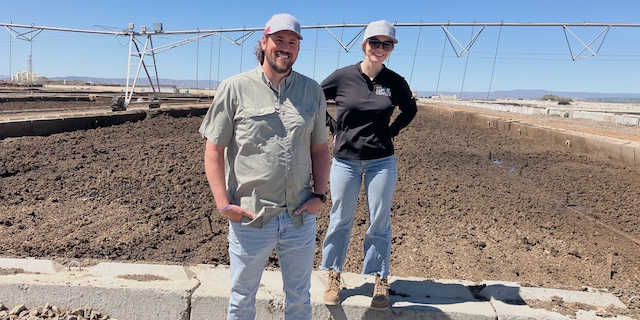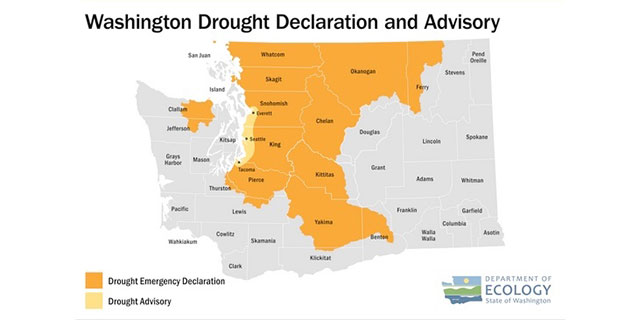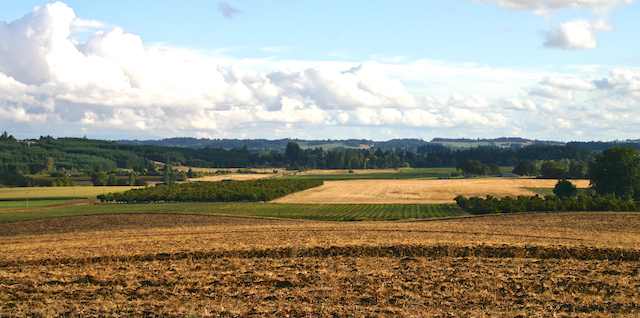Veterans heal by working the land
Published 5:13 pm Monday, November 19, 2018

- President of Veterans Legacy John Lebow. Although not a veteran, he said it’s a passion to help those who are.
VENETA, Ore. — For Dan Buchwald, veteran and vice president of Veterans Legacy, the land dedicated to their cause, dubbed Camp Alma, has healing properties.
Formerly used as the Lane County Sherrif’s forest inmate work camp from 1991 to 2008, the camp is going to host a voluntary residential treatment center for veterans. Buchwald, who is a retired county jail commander, worked 13 years at the camp.
“It’s like retiring and coming home,” he said.
The idea for a veteran’s therapy camp came from the president of the organization, John Lebow. While not a veteran himself, as a physician he has taken care of veterans for years. Lebow has also been a financial supporter of Food for Lane County, but it had always bothered him that no matter how much was done — there were still hungry people. He decided to combine these two efforts.
He calls it the trifecta: The first leg is residential treatment, the second is therapeutic agriculture and the third is integrating vets back into society.
“Therapeutic agriculture is the backbone,” Lebow said. “Digging in the dirt, growing things for yourselves. We want to develop the property to keep pushing the agriculture envelope, where the camp is taken care of and can funnel food to the Eugene Mission and Food For Lane County.”
Of the 105-acred property, only around 5 acres have been utilized for the camp. However, during the camp’s prime it had three greenhouses, a garden and orchard. Every day, inmates would make fresh bread and the camp was self-sustaining. Lebow said his goal is to get it back to that, and to focus on food preservation.
For animals, Lebow said there would be bees, poultry and possibly cattle — although that’s not the first priority — as well as draft horses to help in the garden and for therapy.
“There’s no place in the country doing exactly what we’re doing,” he said. “We’re getting calls all over the country asking what we’re doing, and we haven’t found anyone doing this; it’s really unique.”
Although its own entity, Veterans Legacy plans on partnering in the future with the Department of Veteran Affairs, local Veterans of Foreign Wars chapters and Vet Court, which is a special court for minor offense cases involving veterans.
Veterans Legacy will also offer core clinical treatment therapies outside agriculture. Those basic foundational tools would include anger management classes, behavioral therapy and substance abuse therapy.
However, it was important for Lebow to include alternative therapies, such as music, art, fly fishing, service dogs and sweat lodges.
“Anything that keeps them in the moment,” he said. “Going backward or forwards is scary, and we want them to pick the therapy.”
As a veteran, Buchwald said it was “easy for me to drink the Kool-Aid.”
While all voluntary, treatment will be 24 hours a day. Unlike most treatment facilities, Veterans Legacy will go past three months; Lebow understands it may take up to 18 months for a veteran to be re-integrated into society. Once a veteran moves on from the program, they will always be part of the camp. One of their two dog-tags will be placed on their wall of honor, and they are encouraged to come back as mentors.
At the moment, Veterans Legacy is cleaning up the camp to make it habitable for the veterans. Lebow said he hopes to see it come together in early 2019. Although the camp is focused on male veterans, because of the difficulties that would come with a coed program, Lebow said he hasn’t forgotten about the female veterans and has something in store for them in the future.
Although it has taken a lot of work to bring Camp Alma back to its glory days, Lebow said he is excited for the future of the program: “It’s just a passion.”
6023: Camp Alma, home of Veterans Legacy, was homesteaded by a female pioneer. Vice President Dan Buchwald said the land has “healing properties.”
6033: Veterans Legacy uses therapeutic agriculture as its program’s backbone. The organization will grow its own food and be self-sustained, giving the surplus to the Eugene Mission and Food for Lane County.
6049: President of Veterans Legacy John Lebow. Although not a veteran, he said it’s a passion to help those who are.






